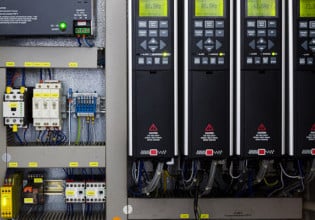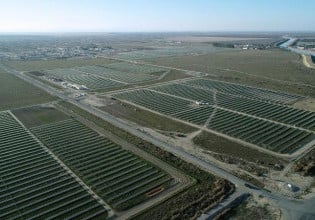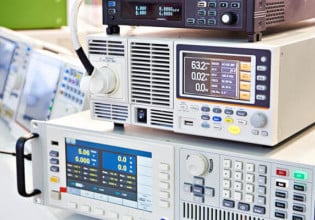Europeans Establish Dueling Projects to Advance Power Electronics Technologies
The recently-established Powerelectronics UK industry consortium has an emphasis on developing next-generation power semiconductors and related technologies. It was established about 18 months after publication of a UK government-sponsored report Power Electronics - A Strategy for Success and the same week as the European Union-sponsored Enhanced Power Pilot Line (EPPL) project was announced to focus on development of advanced generations of power semiconductors manufactured on 300mm wafers.
While there is expected to be significant overlap in the two efforts, the UK activities have a broader charter that includes: Developing and understanding the impact power electronics has on key market sectors, the economy and key societal issues. Creating a technology roadmap for power electronics and identifying where the key opportunities are to be able to deliver high economic and societal impact. Powerelectronics UK will work with the key stakeholders (European, National and Regional government) to identify opportunities for public sector support in technology and manufacturing. The efforts of Powerelectronics UK are expected to extend over a longer period than those of the EPPL project and will consider a broader range of topics including; innovative power semiconductor devices, device substrates, passive components, renewable energy converters, battery management, energy storage and novel control techniques.
Infineon Technologies AG recently hosted a two-day meeting at its Villach site to kick-off one of the largest European research projects focused on advancing industrial production capability. The EPPL project is aimed at further strengthening Europe as a high-technology industrial production site. The EPPL research aims to develop an advanced generation of power semiconductors manufactured in the 300mm thin-wafer production technology, such as CoolMOS, IGBT, and SFET, as well as to further refine the production technology itself. The results of the project shall include the setup of a pilot-line as well as application demonstrators.
The partners are Adixen Vacuum Products, Air Liquide electronics Systems, ams AG, CEST Kompetenzzentrum für elektrochemische Oberflächentechnologie GmbH, Commissariat a l‘Energie Atomique et aux Energies Alternatives, CTR Carinthian Tech Research, E-MOSS, Entegris Cleaning Process, EV Group E. Thallner GmbH, Fachhochschule Stralsund, Fraunhofer E.V. IISB, Fronius International GmbH, Heliox BV, Infineon Technologies (with Austria, Germany and Italy), International Iberian Nanotechnology Laboratory, Ion Beam Services, KAI, Lear Corporation GmbH, Max-Planck-Institut für Eisenforschung GmbH, Montanuniversität Leoben, NANIUM S.A., Nmb-Minebea GmbH, Philips Healthcare (with Germany and the Netherlands), Plansee SE, SPTS Technologies SAS, and the Technical Universities of Dresden (Germany), Eindhoven (the Netherlands) and Graz (Austria).
A total of 32 European partners from industry and research are collaborating to advance production technology for power semiconductors, an industry segment where Europe already has the leading position. Europe is home to the first power semiconductor production sites manufacturing devices using 300-millimeter thin-wafer technology, i.e. on silicon wafers with a 300mm diameter which in addition are extremely thin: hardly thicker than a sheet of paper. With EPPL, Europe intends to further expand this production advantage.
The partner organizations cover the entire industry and research value chain of 300 millimeter power semiconductor production, comprising material research with a focus on silicon, semiconductor development that includes 3D integration and packaging, and related developments in logistics and automation technologies. The project will run until mid-2016, with Infineon as the project lead.
“A project volume of Euro 74 million and the commitment of 32 partner organizations strongly underline the importance of EPPL for the semiconductor industry in Europe,†said Sabine Herlitschka, Chief Technology and Innovation Officer of Infineon Technologies Austria. “Infineon currently is the only company worldwide to produce power semiconductors on 300-millimeter thin-wafers. We are proud and honored to contribute our experience in this area to the EPPL project and thus to Europe’s technology advancement.â€
In its “Europe 2020†initiative, the European Commission has set ambitious targets to reduce greenhouse gas emissions, to improve energy efficiency and to establish electromobility in Europe. Power semiconductors that are designed and manufactured at competitive costs and in sufficient quantities in Europe are key enablers, and EPPL was set up to make a major contribution to achieve these targets. For this reason, EPPL is supported by the European Union as well as by national and regional funding of the participating nations. Among others, the German Ministry of Education and Research (BMBF) plans to support the EPPL project under its “Information and Communication Technology 2020†program.






